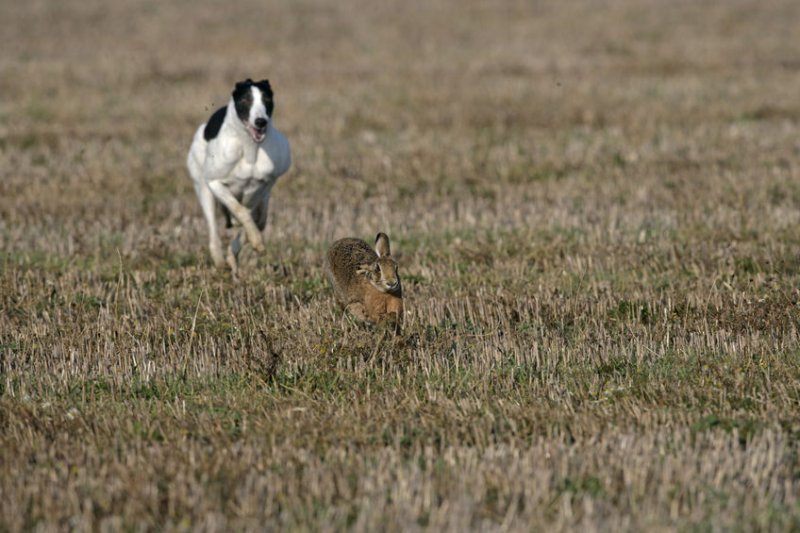
Lincolnshire Police dealt with over 1,000 cases of hare coursing across the county between September 2019 to March 2020, new figures show.
The force has released its latest hare coursing figures, which show there were 1,048 incidents of the crime reported during this year's coursing 'season'.
For the same period during 2018 to 2019, Lincolnshire Police received 873 reports, 1,365 reports for 2017 to 2018 and 1,965 for 2016 to 2017.
Chief Inspector Phil Vickers, who leads rural crime for the force, said this season's figures were the 'second lowest on record'.
"The last 12 months have been challenging times for our farming communities – economic uncertainty, flooding and feeding the nation under lock-down," he said.
"Offenders have sought to continue their activities in fields across Lincolnshire, with coursers travelling significant distances to trespass, cause damage and intimidate local people.
“Our approach under Operation Galileo last season was to focus on prevention – stopping the offences from happening, making use of tactics that really impact on offenders.
“A total of 1048 incidents, from September 2019 to March 2020, is the second lowest on record, but every incident is one too many and we will continue to adapt our working – the only acceptable level is zero."
The force said it had been able to seize dogs and have them forfeited at court, a measure which had the 'greatest impact' on stamping out the crime.
The use of technology has also been useful – drones and farmers routinely pass locations to the police's control room by giving the 'What 3 Words' location.
"That has helped us put our officers in the right place, and is a good example of us all changing our practices to prevent crime," Chief Inspector Vickers said.
Farming groups such as the NFU and Country Land and Business Association (CLA) continue to back Operation Galileo.
How can I help stamp out hare coursing?
Farmers and landowners can help fight hare coursing by looking out for activity in the area, Lincolnshire Police explained.
The most obvious sign is groups of vehicles parked in a rural area, perhaps by a gateway to farmland, on a grass verge, on a farm track or bridle path.
They will usually be estate cars, four wheel drives or vans. It will be obvious looking inside whether there is evidence of dogs or not.
The force said they often travel in convoy, with vans at the front and rear containing ‘minders’, and will often use binoculars to spot hares.
Coursers will often walk along the edge of a field to frighten a hare into the open, it added.
